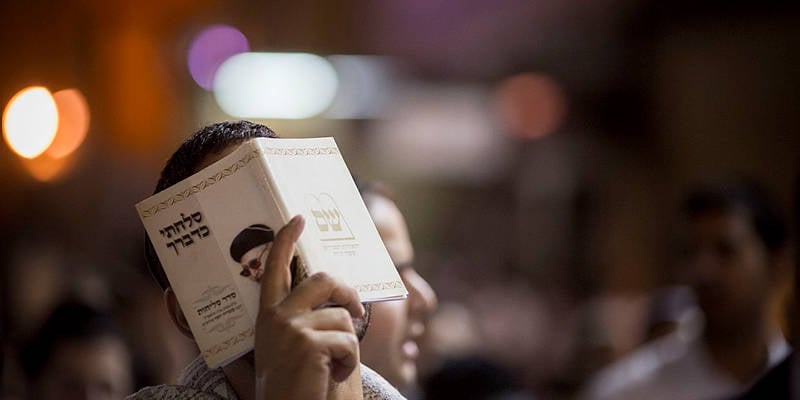Although Yom Kippur is the holiest and most solemn day of the year on the Jewish calendar, it is also a very happy day on which we can seek forgiveness for our sins.
By: Rabbi Ari Enkin, Rabbinic Director, United with Israel
Yom Kippur, the Day of Atonement for our sins, is also called the “Sabbath of Sabbaths.” It is the holiest and most solemn day of the year.
It is the Day of Atonement for all our sins. Although many people don’t realize it, it is actually a very happy day. This is because it is the day that God Almighty, the Creator of the world, “pats us on the back” so to speak, and says, “I forgive you.” Words cannot convey the power and holiness of the day.
Yom Kippur opens with the very mysterious, mystical, and haunting prayer known as “Kol Nidrei.” So prominent are these five lines of prayer, written in Aramaic (not Hebrew!), that “Kol Nidrei” has become synonymous with Yom Kippur eve.
The Kol Nidrei service opens with the removal of all the Torahs from the Holy Ark which are then paraded around the synagogue. Following this solemn procession, all but two Torah scrolls are returned to the Ark, while the two remaining Torahs are held on each side of the cantor. It is considered to be a great honor to be given the task of holding a Torah scroll during the Kol Nidrei service.
The cantor then recites the Kol Nidrei passage three times which reads as follows (slightly edited and abbreviated for better clarity):
“All personal vows that we are likely to make, and all personal oaths and pledges that we are likely to take between this Yom Kippur and the next Yom Kippur, we hereby publicly renounce. They are all renounced and abandoned, null and void, neither recognized nor established. Let all our personal vows, pledges and oaths be considered as nothing.”
After other liturgical passages are recited, the Torah scrolls are put away and the formal evening prayer then begins.
There are many questions that can be asked about the Kol Nidrei prayer. Why does it open the holy day of Yom Kippur? It has nothing to do with sin, repentance or atonement! And what’s this about all future vows being nullified? Are we no longer required to keep our word? What’s going on here?
To answer the second question first- of course a person is required to keep his word! The Kol Nidrei formula does NOT release a person from the promises he makes to other people. As it is written in the Artscroll Edition of the Yom Kippur prayer book:
“There is a dangerous and erroneous misconception among some people that the Kol Nidrei nullification of vows—whether past or future— gives people the right to break their word or to make insincere promises that will have no legal force. This is not the case. The Kol Nidrei declaration can invalidate only vows that one undertakes on his own volition. It has no effect on vows or oaths imposed by someone else.”
So we see that Kol Nidrei works only to annul vows between man and God. For example, did you once perhaps vow in your heart to give money to a certain charity, but did not yet do so? Or perhaps you even forgot which charities you pledged money to? It is these types of vows for which Kol Nidrei is effective. Vows made to God for the fulfillment of good deeds, and the like. When it comes to our fellow man, however, a word is a word, and no prayer or magic formula can nullify one’s commitments or obligations.
As to why Kol Nidrei, which has no mention of sin or forgiveness, and which isn’t even a prayer at all, opens the holy day of Yom Kippur – many answers have been offered.
For one, we learn from here (and other Talmudic sources) that so serious is the sin of not fulfilling one’s vows (even those that are between man and God) that it has the power to prevent our prayers from being heard, and by extension, to possibly prevent us from achieving forgiveness on Yom Kippur. As such, we formally nullify all such vows so that we are cleansed from this terrible sin even before beginning the formal Yom Kippur service.
Another answer, based on kabbala, is that by annulling our vows we are symbolically asking God to reciprocate. For example, in the event that God has “vowed” that we might not have a good year, we recite Kol Nidrei in order to “hint” to Him that just like we annul our vows, so too He should annul all of His, as well.
There is much more that can be written about Kol Nidrei, and the remaining components of the Yom Kippur service. The message, however, is essentially the same: The King is standing before us with open arms. He wants to be part of our lives this year. We just have to let him in.
May we all be sealed for the best year yet!

